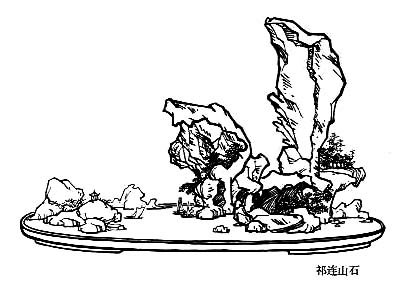Shi Jing 
 – Le Canon des Poèmes
– Le Canon des Poèmes
Le plus ancien recueil connu de poésie chinoise, plus de trois cents chansons, odes et hymnes. Tr. Legge (en) et Granet (fr, incomplète).
Shijing III. 2. (249)
Of [our] admirable, amiable, sovereign,
Most illustrious is the excellent virtue.
He orders rightly the people, orders rightly the officers,
And receives his dignity from heaven,
Which protects and helps him, and [confirms] his appointment,
By repeated acts of renewal from heaven.
[So] does he seek for the emoluments of dignity, [and obtain] all blessings, –
Thousands and hundreds of thousands of descendants,
Of reverent virtue and admirable character,
Fit to be rulers [of States], fit to be king,
Erring in nothing, forgetful of nothing,
Observing and following the old statutes.
[May they] manifest all self-restraint in deportment,
And their virtuous fame be without fail !
Without resentments, without dislikes,
[May they] give free course to [the good among] the officers,
Receiving blessing without limit,
And regulating all within the four quarters [of the kingdom] !
Regulating all, and determining each point,
Giving repose to his friends,
All the princes and ministers,
Will love the son of Heaven.
Not idly occupying his office,
The people will find rest in him.
Legge 249

Le Canon des Poèmes – Shi Jing III. 2. (249) – Chinois off/on – Français/English
Alias Shijing, Shi Jing, Book of Odes, Book of Songs, Classic of Odes, Classic of
Poetry, Livre des Odes, Canon des Poèmes.
Le Canon des Poèmes, Les Entretiens, La Grande Étude, Le Juste Milieu, Les Trois Caractères, Le Livre des Mutations, De la Voie et la Vertu, 300 poèmes Tang, L'Art de la guerre, Trente-six stratagèmes
Bienvenue, aide, notes, introduction, table.
Index – Contact – Haut de page
